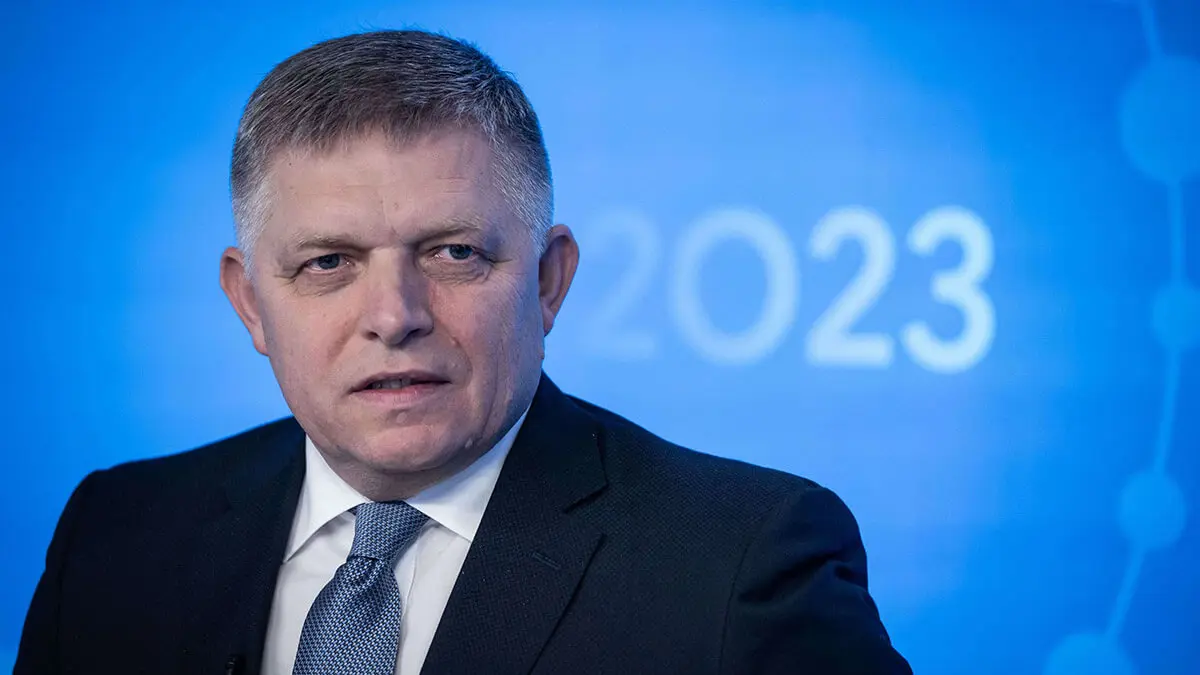Putin sets a pike in Slovakia

Although insufficient -42 seats in a Chamber of 150-, the victory of SMER-SD, Robert Fico's party, in Slovakia's legislative elections, represents a crack in the ranks of the European Union regarding the main issue: the maintenance or not of the support to Ukraine in its war with Russia. Although shorter than the polls predicted, the triumph of this formation, which amalgamates socialism, populism and ultra-nationalism, also represents a tendency towards ideological confusion likely to spread to other Central European countries.
To begin with, these early elections had been provoked by the destabilization of Eduard Heger's government. Sources in the same field point out that it was Russia that inspired and directed the motion of censure against Heger, while at the same time the corresponding campaign was intensified to convince public opinion of "the mistake of the EU in backing, financing and supplying arms to Ukraine, an attitude that prolongs the conflict and the peace negotiations".
Soon the figure of Robert Fico would re-emerge as the standard-bearer of President Putin's Russian cause. Fico, who had already been Slovakia's prime minister between 2006 and 2010 and between 2012 and 2018, would now need the support of HLAS (The Voice), recognized as a social democratic force. This party, now under the leadership of Peter Pellegrini, has won 27 seats, is a split of SMER and, although the sum of both would not give them the absolute majority set at 76 seats, they could complete it with the deputies of other small formations in exchange for some positions and other minimal concessions.
In any case, the 31 seats won by the second force in votes and seats, the pro-European Progressive Slovakia (PS) of Michal Simecka, has very difficult, if not impossible, to counteract the advance of those in favor of Putin. Robert Fico, in whom not a few see the manner and gestures of the Hungarian Viktor Orban, has veered from a classical left towards the nationalist populism that his party is currently espousing. If he finally succeeds in forming a government, Fico will clearly form a tandem with Orban, increasing the problem of dissidence that the Hungarian leader has been leading, often in collaboration with Poland, within the European Union.
Fico's speeches in his electoral campaign show very severe differences with Brussels, even sprinkled with markedly hostile accusations: "We accuse the EU -he has repeated several times- of having gone from a peace project to supporting the war; of not having its own strategy for Ukraine and of blindly following what the United States dictates". To cap such coarse words, and if he does not change his mind, Fico has promised that he will cut off Bratislava's military aid to Ukraine and in return will intensify ties with Russia.
It is clear, then, that Putin has put a spike in Slovakia, where in addition to the election results, an atmosphere has been created that is progressively hostile to Western support for Ukraine. A Globosec poll prior to the elections, quoted by Rosalia Sanchez in the ABC newspaper, states that "34% of Slovaks believe that the war was provoked by the West, and 76% condemn the sanctions against Russia and 69% reject military aid to Ukraine". Russian farms dedicated to disinformation would therefore be working at full capacity, with a special focus on Central Europe.
Slovakia, which has barely five million inhabitants, can quickly spread its virus of pro-European dissidence. In the neighboring Czech Republic, for example, movements very similar to what has happened in Slovakia are already being observed. The openly pro-Russian PRO party is reportedly maneuvering to destabilize the government of Prime Minister Petr Fiala and force early elections.
This October there will also be elections in Poland, whose unquestionable support for Ukraine at the beginning of the Russian invasion is now changing substantially. The tares sown by Putin seem to be finding fertile soil to germinate.


